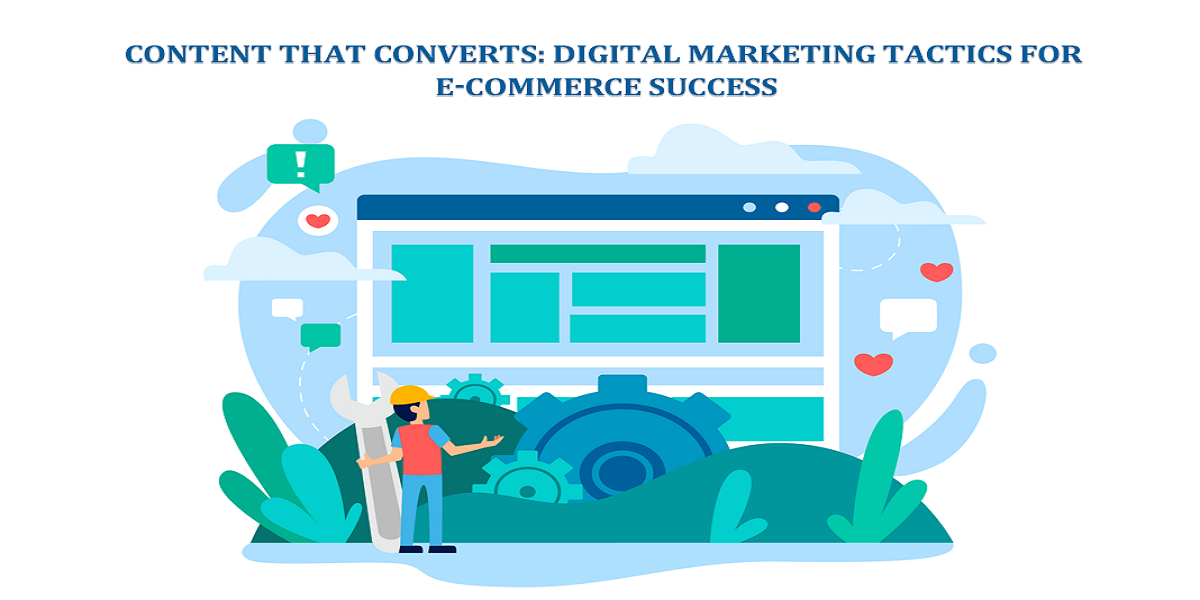.png)
Boost Sales and Conversions with Shopify's New AI-Powered Semantic Search
- By Naveen Sharma
- 23-04-2024
- E-commerce
In the fast-paced environment of e-commerce, staying abreast of trends is not a luxury; it is a requirement. Shopify's New AI-Powered Semantic Search takes the front seat in this trend and is a promise to shape the future of e-commerce the way your customers interact with your online store. This better understands the actual intent behind the search query and, therefore, improves product discoverability. This means an increase in customer satisfaction, finally catapulting sales and conversions. Hire Shopify Development Agencies and make the most out of this transformational tool, whether you are the big and established e-commerce giant or the small budding entrepreneur, and let your store touch success like never before.
The Evolution of E-commerce Search
The search mechanisms of e-commerce have largely transformed with time, from basic keyword matching to now having efficient algorithms that can understand the human language. The searches were rudimentary at the onset, with most of them depending very much on exact matches of keywords. This often becomes a source of frustration to the users since the searches are even conducted sometimes without any idea as to the context or the intent which the system can understand.
However, the shift of importance came with the introduction of AI and with the semantic search technologies. These are the technologies which actually brought the phase where search engines were trying to interpret, or rather to read, intent, and context of queries. It is this move from a literal sense to conceptual meaning that greatly enhanced the relevance and preciseness of search results, allowing, in effect, customers to find what they really were actually looking for, especially in cases of vague, incomplete queries.
Modern-day e-commerce platforms, such as Shopify, are empowered with advanced natural language processing and machine learning, developing your search functionality to be intuitive and, at the same time, strikingly intelligent. This development is a further step toward even more individual and engaging experiences of shopping, ensuring that the ways in which customers really experience shopping at a web store will be affected.
Understanding Shopify's New AI-Powered Semantic Search
Shopify's new AI-powered Semantic Search is the quantum leap of e-commerce search technology. In fact, one of the things that makes it unique from the Google search engine apart from being AI-driven is the sophisticated artificial intelligence it uses to understand and process your natural language queries in order to draw the meaning, intent, and context of each search.
How It Works
The semantic search of Shopify comprehends and processes the search query with the help of NLP and machine learning algorithms. Traditional search engines rely on a keyword producing a strict match, while AI-driven systems understand context, intent, and even nuanced meanings that may be accompanying a user's search query. That is, the latter position at hand gives a wide spectrum of search terms, including the exact name of a product, a general description, or even slang or colloquial languages.
Key Features and Benefits
Improved accuracy: The system can understand what the user is referring to with his search query and probably what he intends. That way, more accurate search results will be returned. This thus eliminates user frustration that is tied to not finding what they are searching for and thus betters their search experience on the platform.
User Experience: AI-powered search only supports natural human speech while enhancing the intuitiveness and user-friendly shopping experience on Shopify. In a real sense, this is a kind of search that lets a person enter queries in a very human way, not guessing what kind of queries the system will be able to understand.
Increased Sales and Conversions: The more relevant search results push up the opportunities of sales and conversion for a customer to find just what he was looking for. When it is easy for a customer to find what they are looking for, then it's the time buying decisions start.
Customer's intent: The AI system will not only improve its search but enable the collection and analysis of data on how customers are searching. That provides the insight into what customers are looking for and their behavior, which is quite useful for the store owner in deciding the product listing, among others, and efforts put into marketing strategies.
This breakthrough in search technology is not an upgrade but rather changes the game, promising to redefine the online shopping experience to be far more in line with how we think and speak.
Why Does Your Shopify Store Need Semantic Search?
Integrating the new Shopify AI-Powered Semantic Search into your store is beyond keeping up with the latest technology. It revolutionizes the way your customers will connect with your e-commerce platform. This powerful tool could reshape user experience, conversion rates, and customer satisfaction across several important measures.
Enhanced User Experience
Enhanced User Experience
The first benefit, and likely most direct, is a vast improvement in user experience. This is because they will save the shopper from the task of trying to think of the exact keywords or pages and pages of unrelated results. A semantic search processes the users' questions in a way very similar to a human being and, hence, delivers results that respond actually to the intentions of the questions. This thus makes the search more natural, even bordering on conversational, thus keeping the user involved and, hence, reducing bounce rates, encouraging exploring.
Improved Conversion Rates
This leads to a much higher chance of customers finding the products they search for, having more accurate results in their search query, and an organic conversion. Thus, semantic search plays a significant role in converting browsers into buyers by promptly responding to one factor: the gap between customer desire and product discovery.
Increased Customer Satisfaction and Loyalty
Customer satisfaction is, therefore, from satisfying search experiences. When shoppers can find whatever they are looking for in a quick and easy manner, it augments the overall satisfaction of the store. From this positive experience, it's likely to derive more than just immediate sales, but long-term loyalty and encouraging customers to come back.
Competitive Edge
E-commerce is a crowded space, and a great search experience may be the one thing that makes your Shopify store stand out. Relevance would be to differentiate your site from others in the increasingly crowded space, as customers value precision and time in an array of online shops.
That will enhance your search engine, but your store is going to the next level to be far more responsible, intuitive, and aligned to customers' needs, ensuring a very good purchasing experience, using AI-driven semantic search from Shopify.
Implementing Semantic Search in Your Shopify Store
Implementing Semantic Search in Your Shopify Store The new AI-powered Semantic Search by Shopify provides perfect timing to increase your customers' experience and strategically plan to raise your sales. It might be somehow intimidating from the very beginning, but the thing is super simple—especially if a Shopify development agency is leading you through the process. Here’s how:
Basic Steps to Enable Semantic Search
1. Update Your Shopify Platform
Why It's Important: To keep your Shopify platform up to date is one way to get access to the recent functionalities and improvements of the latest version. These features include enhanced search capabilities. Shopify, like any other software, changes continually, and updates usually introduce enhancements and novel abilities that can make the search in your store work faster and be more effective.
How to Do It: The first thing you have to do is to see whether there are any platform updates for your Shopify admin dashboard. One of the good things about Shopify is that they usually let their store owners know when updates are available, so it’s pretty easy for you to keep up with the new things. Applying updates as soon as they are released is important because by doing this, your store can enjoy all the features of the newer and improved versions such as security patches.
2. Configure Your Search Settings
Why It's Important: Although Shopify offers a variety of settings to customize the search feature, which can be used to meet your store and customer requirements, you can change them easily and find an ideal variant that works best. To make sure that your search is accurate and useful, it is recommended to set these settings properly because they will influence the user’s experience and the quality of the search itself.
How to Do It: Start by immersing yourself in the world of the Shopify admin panel and taking a close look at the search settings provided. Pay attention to the possibilities that give you the ability to customize search results, for example, which product or category should be displayed first. Play with these settings to make sure they are aligned with your shoppers’ online behavior and preferences.
3. Optimize Product Listings
Why It's Important: The precision of semantic search is a result of the clarity and specificity contained in your product listings. Information on specific attributes, the use of words that are relevant to the query, and quality images all allow for accurate and useful search results. These enhancements guarantee that when semantic search analyzes a query, it has an ample number of data points to draw from, thereby generating matches between user queries and product listings.
How to Do It: Thoroughly assess your product descriptions. Check that each of them contains a detailed write-up that encompasses the keywords buyers usually use in their search process. Desist from cramming keywords and concentrate more on crafting information-filled and interesting descriptions. In addition, it is imperative to use good quality pictures that accurately show how the product looks, as it can impact customer decisions to look at a product more or even make a purchase.
4. Additional Considerations
Mobile Responsiveness: As the number of people who shop through mobile phones keeps growing, it is essential to have a mobile-friendly store in order to make purchases easy. Although this does not concern the semantic search directly, it is very significant in terms of the total user experience.
Customer Feedback: You must study and examine customers’ feedback on search features to make your search more effective. This could uncover possible weak points of the system that you have not noticed yet.
Enlisting the Help of a Shopify Development Agency
Partnering with a Shopify development agency can be incredibly beneficial for those looking to maximize the potential of semantic search. These agencies specialize in custom Shopify solutions and can offer:
- Enhanced details on how you can achieve the best search functionality for your store.
- There are also custom development services that can enhance the search experience by offering options like more advanced filters or personalized search recommendations.
- To keep your research capabilities adapting to business demands and customer satisfaction, we will continuously provide you with supportive assistance and expert consultation.
By taking these steps and possibly collaborating with an experienced agency, you can harness the full power of AI-powered semantic search, creating a seamless and intuitive shopping experience that drives conversions and fosters customer loyalty.
Conclusion
Developed by Shopify, the AI-driven semantic search function goes beyond being a mere feature; it opens the door to an immersive shopping experience that is in harmony with the way shoppers process and express their thoughts. By learning how this innovation works and applying it to your business model, you can improve both shopping trip effectiveness and pleasure, while also driving substantial surges of revenue for your store.
Whether you are taking steps to assimilate semantic search or trying to make it perform better, remember that the improvement of search does not have an end. Ensuring your store stays ahead of the curve when it comes to ecommerce innovation can be achieved through continuous optimization and leveraging learnings from effective case studies as well as specialized guidance from the Shopify development agency.
The semantic search of Shopify is a great improvement and brings a new era in the creation of a better, more pleasurable, and meaningful experience of online shopping that has never been seen before.
FAQs
1. In what terms are semantic search and traditional search different?
Revolving around the meaning of the whole phrase, semantic search recognizes the context and objective behind queries, giving out results that are not just keyword matches. The outcome is a more accurate search result with a relevance level high enough to enhance the shopping experience.
2. What impacts semantic search have on SEO?
The thing about semantic search is that it delivers better search results, which can directly impact the user experience through metrics like time on site and bounce rates – metrics that bear positive SEO signals. Besides, once you optimize your product descriptions for semantic search, your visibility in Shopify and other external search engines will have a definite chance of improving.
3. Is it possible for small Shopify stores to benefit from semantic search?
It is certain. The great value of semantic search is that it opens the opportunity for those small stores to deliver a search experience similar to what large e-commerce platforms offer, which might boost conversions and customer satisfaction unbound by store size.
4. Does the task of integrating semantic search require the hiring of a Shopify development agency?
The expertise that can be obtained through the services of a Shopify development agency is not something you strictly need, but it is definitely more than just adjusting the search functionality with the default settings to reach its maximum performance while making it more fitted to your demands.
5. Can you tell me what measures I need to implement to take my store through semantic search optimization?
In order to optimize product titles and descriptions, you can use specific detailed descriptions that capture the natural language of the customer, which is as close as possible to their search behaviors. It’s a good idea to review the regular search analytics on an ongoing basis to gain insights into how customers are leveraging search so you can adjust your content strategy accordingly.
6. What are the methods of Shopify’s semantic search used to eliminate misspellings and synonyms?
Semantic search provided by Shopify easily detects slight mistakes and understands word synonyms, and as a result, search requests will still provide consumers with the necessary information if the proper term has not been used correctly. This sophisticated technology is underpinned by Natural Language Processing (NLP) to read users’ intentions behind a search, improving the user experience by accommodating natural variances in language use.
7. Is Shopify's AI-powered Semantic Search available to all Shopify plans?
Yes, the semantic search feature built by Shopify is a built-in feature available with all of its plans but still, levels like customization depth and advanced analytics can only be dependent on your specific plan.
8. Can I measure the impact of semantic search on my Shopify store?
Definitely, Shopify comes equipped with analytic tools that enable one to analyze the impact that using semantic search will have in your store.
Among these are search-related conversion rates, average order value, and bounce rates from search pages, and user engagement metrics. Analyzing them, you will be able to understand to what extent semantic search augments the shopping experience at your store and contributes to the store's performance.
9. Will implementing semantic search affect my store's loading speed?
The Semantic Search feature in Shopify functions very efficiently and should in no way be an obstacle to the loading of your store. In most cases, processing of the search is done on servers, and Shopify has optimized its platforms such that any additional functionality, like semantic search, will still balance the processing power with serviceability.
Recent blog

How NASA Uses Web Design to Optimize User Experience in Space Control
Web Design | 03-05-2024
Content that Converts: Digital Marketing Tactics for E-Commerce Success
E-commerce | 02-05-2024.png)




